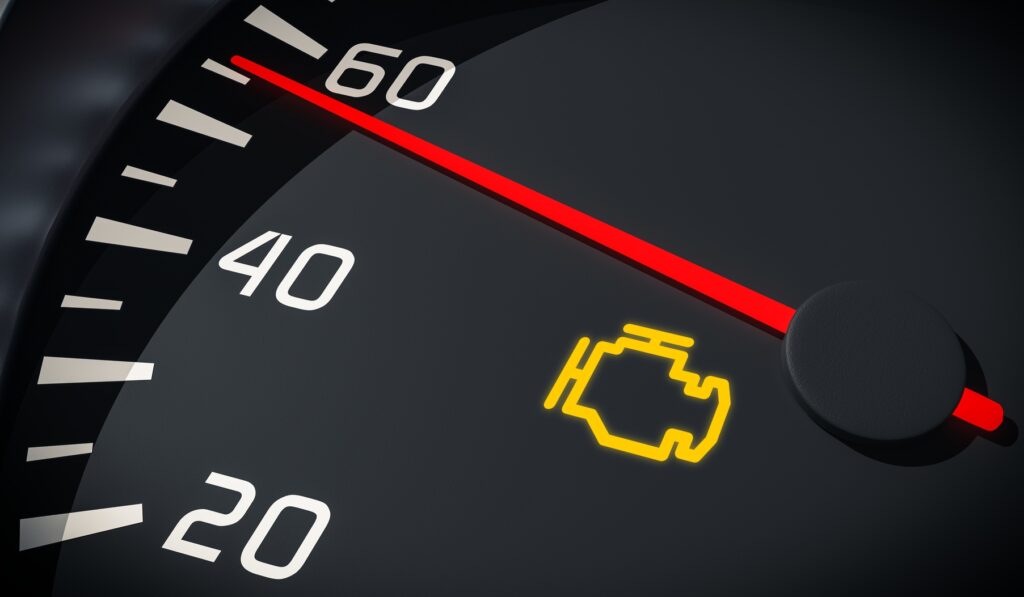
Nissan Juke Engine Malfunction Service Now – Complete Fix Guide

When that dreaded “Engine Malfunction: Service Now” message flashes on your Nissan Juke’s dashboard, it’s easy to panic. Whether you’re cruising down the motorway or just starting your car, this alert signals that your Juke’s onboard computer has detected something abnormal. But what exactly does it mean—and how do we fix it without breaking the bank?
In this definitive guide, we dive deep into the causes, diagnostics, and solutions for the “Engine Malfunction: Service Now” warning across all Juke models, including the 1.0, 1.2, 1.5, and 1.6 DIG-T engines.
- 1. What Does “Engine Malfunction: Service Now” Mean?
- 2. Common Causes of the Engine Malfunction Warning
- 3. How the Nissan Juke Detects Engine Issues
- 4. Immediate Actions When the Warning Appears
- 5. Can You Drive with the Warning On?
- 6. Diagnostic Trouble Codes (DTCs) Linked to Engine Malfunction
- 7. How to Check Engine Codes on the Juke
- 8. Step-by-Step: Resetting the Engine Malfunction Warning
- 9. Electrical and Sensor-Related Faults
- 10. Fuel and Air System Problems
- 11. Turbocharger and Exhaust Issues
- 12. Engine Oil and Maintenance Factors
- 13. Fixing Engine Malfunction – Common Scenarios
- 14. Preventive Maintenance Tips
- 15. Cost to Diagnose and Repair
- 16. How Software Updates Affect the Warning
- 17. When to Visit a Nissan Dealer
- 18. Final Thoughts
- 19. FAQs
1. What Does “Engine Malfunction: Service Now” Mean?
This message is your Nissan Juke’s way of shouting for attention. It’s the car’s Engine Control Unit (ECU) signaling that one or more parameters are outside their normal range.
It doesn’t necessarily mean catastrophic damage—but it does mean something isn’t working optimally, be it the fuel system, ignition, emissions, or sensors.
2. Common Causes of the Engine Malfunction Warning
Let’s look at the most frequent culprits behind this alert:
- Faulty Oxygen Sensor (O2 sensor)
- Mass Air Flow (MAF) sensor failure
- EGR valve issues
- Low engine oil or wrong oil grade
- Blocked catalytic converter
- Misfires or ignition coil failure
- Fuel injector malfunction
- Software or ECU glitch
- Turbocharger sensor or boost leak
Each of these components plays a vital role in how your engine breathes, burns, and performs. A fault in any can trigger that orange engine symbol.
3. How the Nissan Juke Detects Engine Issues
The ECU constantly monitors sensors throughout the vehicle—tracking oxygen levels, air intake, fuel ratios, temperature, and pressure.
When the readings stray from the expected norms, it triggers a Diagnostic Trouble Code (DTC), prompting the “Engine Malfunction” alert.
Think of it as your Juke’s internal doctor, diagnosing symptoms before a total breakdown occurs.
4. Immediate Actions When the Warning Appears
Here’s what you should do the moment you see the message:
- Pull over safely if the engine feels rough or sluggish.
- Check oil level using the dipstick.
- Restart the car to see if the alert disappears temporarily.
- Avoid high revs or heavy loads.
- Use an OBD-II scanner to read any fault codes.
If the car feels normal, you can drive short distances—but don’t ignore the warning for long.
5. Can You Drive with the Warning On?
Technically, yes—but only if your Juke isn’t showing symptoms like:
- Rough idling
- Loss of power
- Excessive smoke
- Unusual noises
If any of these occur, continuing to drive could cause more serious engine or catalytic converter damage.
6. Diagnostic Trouble Codes (DTCs) Linked to Engine Malfunction
Some of the most common DTCs associated with the Juke include:
You may be interested in reading Nissan Juke Radio Not Working: The Complete Troubleshooting Guide
Nissan Juke Radio Not Working: The Complete Troubleshooting Guide| Code | Description | Likely Fix |
|---|---|---|
| P0171 | System Too Lean | Check air leaks, MAF sensor |
| P0300 | Random Misfire | Inspect spark plugs, coils |
| P0420 | Catalyst Efficiency Below Threshold | Replace catalytic converter |
| P0101 | MAF Sensor Range | Clean or replace MAF sensor |
| P0130 | O2 Sensor Circuit | Replace oxygen sensor |
7. How to Check Engine Codes on the Juke
You can easily read fault codes using:
- OBD-II scanner (plugged under the steering wheel)
- Nissan Consult software (for dealers)
- Mobile apps like Torque Pro or Car Scanner
Once connected, the scanner displays stored DTCs, giving you a clear direction for repair.
8. Step-by-Step: Resetting the Engine Malfunction Warning
If the issue is minor or after repair, you can reset the warning:
- Turn ignition ON (engine OFF).
- Press accelerator five times within 5 seconds.
- Wait 10 seconds, then hold pedal down for 10 seconds.
- The Check Engine light will start flashing—release pedal.
- Turn ignition OFF and restart.
Note: If the cause remains, the warning will reappear.
Faulty sensors are the number-one trigger for this warning. Here’s how they typically fail:
- O2 sensors degrade over time from exhaust soot.
- MAF sensors get dirty or contaminated.
- Throttle position sensors give erratic readings.
- ECU connectors corrode due to moisture.
Regular inspection and cleaning can prevent many of these from escalating.
10. Fuel and Air System Problems
If your Juke isn’t getting the right air-fuel mix, combustion efficiency drops—leading to the warning message.
Common Causes:
- Blocked air filter
- Weak fuel pump or clogged injectors
- Vacuum leaks in intake hoses
- Low-quality fuel or water contamination
Fixing these restores performance and fuel economy.
11. Turbocharger and Exhaust Issues
For turbocharged Juke models (like the 1.6 DIG-T):
- Boost leaks can cause underperformance and warnings.
- Wastegate actuators may stick or fail.
- Blocked DPF (Diesel models) can cause “Service Now” alerts.
A turbo boost pressure test can help confirm the issue quickly.
12. Engine Oil and Maintenance Factors
Low oil pressure or old oil can easily trigger this message. Always use the recommended grade:
| Engine Type | Oil Grade | Capacity |
|---|---|---|
| 1.2 DIG-T | 5W-30 | 4.4 L |
| 1.5 dCi | 5W-40 | 4.3 L |
| 1.6 Petrol | 5W-30 | 4.5 L |
A fresh oil change often clears minor warning triggers.
13. Fixing Engine Malfunction – Common Scenarios
Let’s decode some real-life examples:
You may be interested in reading Nissan Juke Radio Not Working: The Complete Troubleshooting Guide
Nissan Juke Radio Not Working: The Complete Troubleshooting Guide Nissan Juke Juddering When Accelerating: Causes, Fixes, and Insights
Nissan Juke Juddering When Accelerating: Causes, Fixes, and Insights- Scenario 1: Rough idle + P0171 → Clean MAF sensor.
- Scenario 2: Loss of power + P0420 → Replace catalytic converter.
- Scenario 3: Misfire + P0300 → Check ignition coils and plugs.
- Scenario 4: Diesel DPF warning → Force regeneration or replace DPF.
14. Preventive Maintenance Tips
To minimize the chance of engine malfunction:
- Use premium fuel and change filters regularly.
- Replace spark plugs every 40,000 miles.
- Clean throttle body annually.
- Avoid short cold starts (they clog sensors).
- Check oil every two weeks.
Preventive care keeps your Juke running smoothly—and dashboard lights off.
15. Cost to Diagnose and Repair
Typical repair costs in the UK:
| Problem | Approx. Cost (£) |
|---|---|
| O2 Sensor Replacement | £120–£180 |
| MAF Sensor | £150–£220 |
| Ignition Coil | £80–£150 each |
| Catalytic Converter | £400–£800 |
| ECU Software Update | £60–£100 |
Early diagnosis prevents small issues from becoming four-digit nightmares.
16. How Software Updates Affect the Warning
Sometimes, the issue isn’t mechanical at all—it’s digital. Nissan periodically releases ECU firmware updates to fix sensor calibration or fuel map errors.
Visiting your dealer for a quick update can solve recurring alerts instantly.
17. When to Visit a Nissan Dealer
Seek professional help if:
- The warning reappears after reset.
- You notice smoke, vibration, or limp mode.
- Your OBD scanner shows multiple unrelated codes.
Dealerships have specialized diagnostic tools that can pinpoint deep-rooted issues invisible to standard scanners.
18. Final Thoughts
The “Engine Malfunction: Service Now” message isn’t the end of your Nissan Juke’s story—it’s just a call for attention.
By understanding its triggers and following proper diagnostics, we can fix most issues quickly, economically, and confidently.
Whether it’s a dirty sensor or a complex ECU fault, staying proactive ensures your Juke continues delivering that sporty, punchy performance it’s known for.
19. FAQs
1. What does “Engine Malfunction Service Now” mean?
It means the car’s ECU has detected a system fault requiring inspection—usually related to emissions, fuel, or air intake.
2. Can I reset the warning myself?
Yes, but if the fault remains unresolved, it’ll return. Always scan for codes before clearing.
3. Is it safe to drive with this warning?
Short-term, yes—if no other symptoms are present. But prolonged driving risks engine damage.
4. Will low oil cause this message?
Absolutely. Low or incorrect oil grade is a common trigger for this alert.
You may be interested in reading Nissan Juke Radio Not Working: The Complete Troubleshooting Guide
Nissan Juke Radio Not Working: The Complete Troubleshooting Guide Nissan Juke Juddering When Accelerating: Causes, Fixes, and Insights
Nissan Juke Juddering When Accelerating: Causes, Fixes, and Insights Nissan Juke Screen Not Working: Causes, Fixes, and Expert Solutions
Nissan Juke Screen Not Working: Causes, Fixes, and Expert Solutions5. How much does it cost to fix?
Minor sensor issues may cost under £150, while major faults like catalytic converter replacement can reach £800+.
If you want to know other articles similar to Nissan Juke Engine Malfunction Service Now – Complete Fix Guide you can visit the category Common Problems.
Leave a Reply






More content of your interest